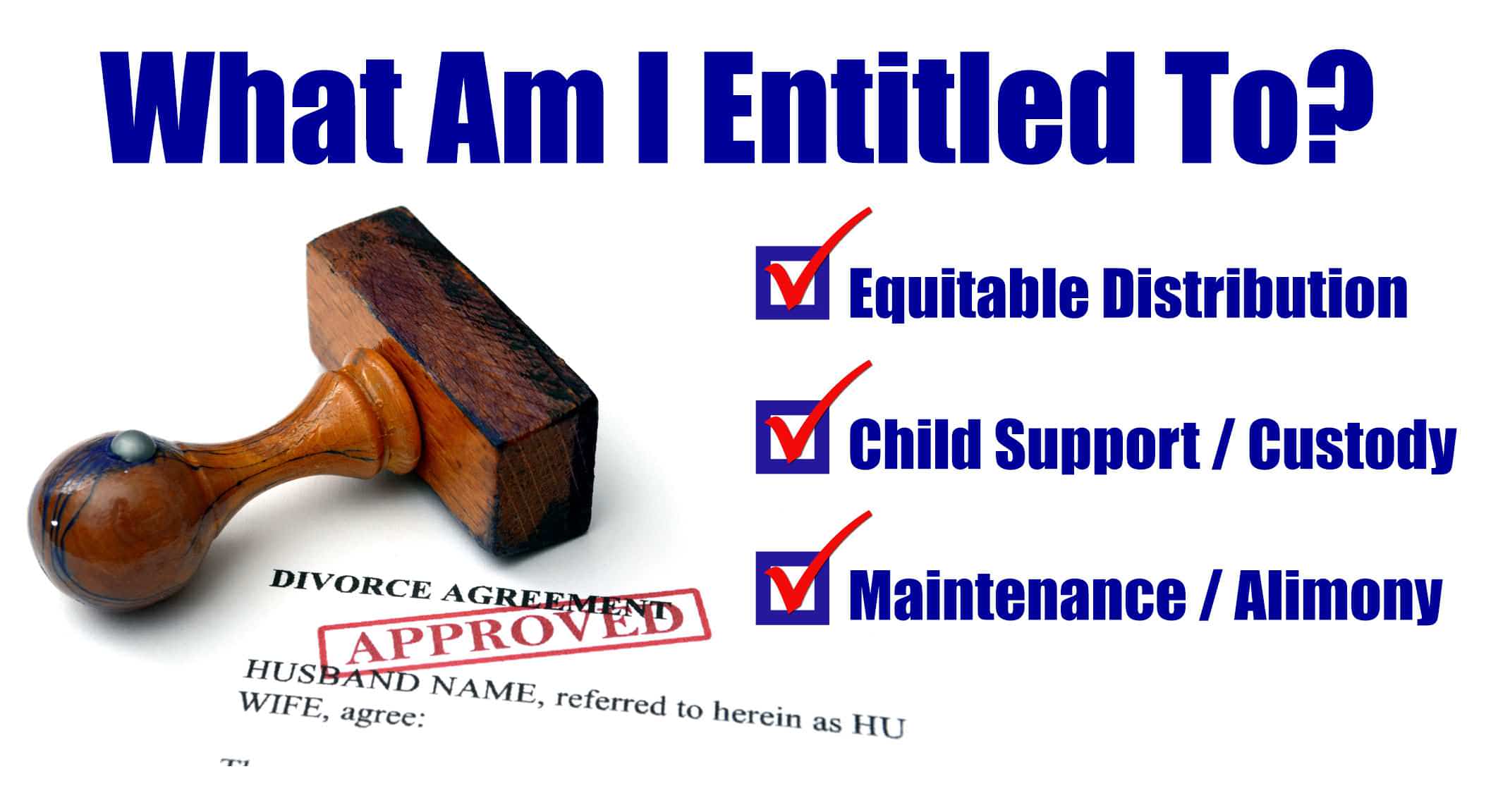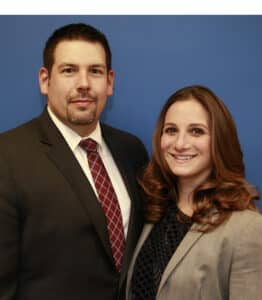What Am I Entitled To In My Long Island Divorce?
Long Island Courts Have Standards for Divorcing Couples Contact Us for a Free ConsultationCall 631-923-1910
One of the first and most common questions we hear as Long Island Divorce Attorneys is, “What Am I Entitled To?” While every case is unique, there are certain standards New York State law provides for divorcing couples. One important caveat however, is that that you and your spouse are free to make an agreement outside of these minimum standards. Below, we will outline the minimum standards courts on Long Island use to determine to what you’re entitled.
Contested Divorce Does Not Mean Financial Ruin
It is a common misconception that a Contested Divorce will lead you and your family to financial ruin. While Contested Divorces, by their nature, can be expensive if the parties involved are unwilling to compromise, this is certainly not true for everyone. Legal fees and expenses are, in reality, controlled by you and your spouse. For example, if the two of you can resolve your divorce without having to go to trial, that will save you both a significant expense.
New York State Law Protects You
Additionally, the law in New York State protects you and ensures that you and your children have the resources to move on to a happier, healthier, more fulfilled life. While no two couples are the same, there are basic guidelines offered by New York State law that can provide a bottom line when it comes to your settlement. These guidelines will typically apply to Child Support, Spousal Maintenance (or alimony) and Equitable Distribution (the division of marital property). Keep in mind, however, that you and your spouse are free to make your own agreement outside of these guidelines if you wish.
Child Support
Child Support is the monthly financial obligation for which each parent is responsible. Pursuant to New York State Law, the non-custodial parent, or the parent the children do not live with, is responsible to provide financial support to the custodial parent (the parent the child or children do live with) each month. Child Support is determined by a statutory formula set forth in the Child Support Standards Act (CSSA). In addition to the basic Child Support obligation set forth in the CSSA, some non-custodial parents will also be responsible for a percentage of medical, educational and child-care expenses. Again, if you and your spouse can reach an agreement on Child Support without Court intervention and outside the Child Support Standards formula, you are free to do so.
For specifics on Child Support Guidelines used in Long Island courts, click here.
Spousal Maintenance
Spousal maintenance, which may be paid during the pendency of your divorce and/or after the final resolution of your divorce, are payments made by the higher income earning spouse to the lower income earning spouse. If you are directed to make temporary spousal maintenance payments while your case is progressing, your obligation to make these payments will terminate upon a final resolution of your matter whether by Stipulation of Settlement or Trial Order. However, if you are also directed to make post-divorce spousal maintenance payments, that obligation will likely commence upon execution of the Stipulation of Settlement or the receipt of a Trial Order. There is, just like Child Support, a formula the Court will use to determine the amount of the obligation, as well as the duration of the obligation. Notwithstanding, the Court may deviate from the formula if it determines the award is too high or too low given the totality of circumstances of your case. However, you and your spouse are still free to reach an agreement without Court intervention if you so choose.
For specifics on Spousal Maintenance Guidelines used in Long Island courts, click here
Equitable Distribution
Equitable Distribution is a term used when discussing the division of marital property. Boiled down to its simplest form, Equitable Distribution ensures that each spouse receives his or her equitable share of the marital property. Martial property can range from bank accounts to retirement accounts to the marital residence to furniture and cars. There are certain exceptions to what is considered marital property, which is one reason it’s so important to have an experienced Long Island Divorce Attorney by your side. It is also important to note that distribution is based on a principle of equity, not equality, meaning the split of marital property may not be 50/50. Rather, Long Island courts will consider many factors and examine the totality of circumstances surrounding your case to determine the most fair and evenhanded distribution of all marital property. In order to effectively argue your case, it is critical to be aware of the factors the Court will consider. This is yet another reason to have an experienced Divorce Attorney on your side.
While going through your divorce, it is important to understand what you are entitled to. In order to effectively plan for your post-divorce life, having realistic expectations about what you are entitled to is very important. Having an experienced Long Island Divorce Attorney by your side will ease your mind and help you devise a strategy to help meet your goals. He or she will be able to effectively argue your case to the judge, or, to effectively negotiate your case with your spouse or spouse’s attorney.
For specifics on Equitable Distribution Guidelines used in Long Island courts, click here.
Contact an Experienced Long Island Divorce Attorney to Learn What You Are Entitled To In Your Case
For a free initial consultation with an experienced Long Island Divorce Attorney, contact us at 631-923-1910 or fill out the short form below.
See this page for Your Guide to Preparing for a Contested Divorce.
“Beyond happy with the amazing job Robert did with my family court custody matter. He handled everything professionally and with great ease. Went in uneasy about what was going to happen and Robert made me feel so much better and got me everything I wanted and more. I recommend him to everyone and anyone who is looking for a family court and divorce attorney.”
SCHEDULE YOUR FREE CONSULTATION TODAY
Call 631-923-1910 or fill in the form below

Schedule your complimentary consultation and case evaluation with our experienced attorneys today. When you call, you’ll speak to our friendly Client Services Director, who will be able to answer your general questions and set up your appointment with an attorney who specializes in your unique case.
At your meeting, your attorney will describe the many options available and determine together which is the right solution for you. By the end of this meeting we’ll all understand how we can best help you to move forward.
No Cost or Obligation
There is no cost or obligation for this initial consultation. It is simply an opportunity for us to get to know each other, answer your questions and learn if Hornberger Verbitsky, P.C. is right the right law firm for you.












